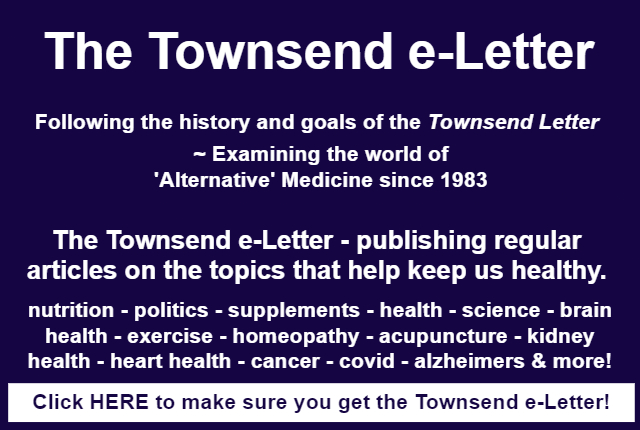Lost Connections: Uncovering the Real Causes of Depression—and the Unexpected Solutions by Johann Hari.
Hardback; ISBN 978-1-63286-830-5; 321 pp; $28.00 (US)
A book review by Jule Klotter
Johann Hari, journalist and author, has suffered with depression and anxiety from a very young age. As a teen he was relieved to learn that his depression was caused by low levels of serotonin in the brain and could be fixed with one of the new selective serotonin reuptake inhibitors (SSRIs)—or so he was told. He welcomed the treatment and held fast to the serotonin theory even though the darkness kept creeping back despite increased doses and adverse effects, like weight gain. Even at high doses, however, the depression remained.
After years of gentle prodding by his therapist, Hari was weaned from the SSRI. He began a three-year worldwide investigation, conducting over 200 interviews with researchers, social scientists, doctors, therapists, people with depression, and those who recovered. The result is his 2018 book Lost Connections: Uncovering the Real Causes of Depression—and the Unexpected Solutions.
In the course of his research, Hari learned that depression and anxiety are no longer viewed as separate entities; they are “twinned”: “Everything that causes an increase in depression also causes an increase in anxiety, and the other way around. They rise and fall together.” He found that the depression/anxiety affecting some and the general unhappiness affecting many others have less to do with brain chemistry and more to do with our world and how we live.
This is not to say that biology is not a factor. Pharmaceuticals do help some people; and, Townsend Letter has published numerous articles on the use of orthomolecular and nutrition therapies for addressing behavior and psychiatric disorders. But equally important (or in some cases more) are social factors and life circumstances.
Hari learned that the symptoms of grief match the symptoms for depression: “If you simply use the checklist, virtually anyone who has lost someone should be diagnosed as having a clear mental illness.” These symptoms are considered reasonable and acceptable after the death of a loved one. Hari began to wonder: “What if depression is, in fact, a form of grief—for our own lives not being as they should? What if it is a form of grief for the connections we have lost, yet still need?”
From interviews with clinicians and social scientists, Hari learned that lost connections and disconnections can take many forms: disconnection from meaningful work, from other people, from meaningful values, from childhood trauma, from status and respect, from the natural world, from a hopeful or secure future.
Do you engage in work that touches you and has purpose for you, or are you trapped in a deadening cog-in-a-wheel job? Do you have people with whom you share “mutual aid and protection” and meaningful exchanges?
Do you follow goals that arise from your core being and heart, or do extrinsic values (eg, money, possessions, outside approval), “sold” through media and culture, rule?
Have you received aid and support to face traumatic events and their effects in your life? Are you treated with respect?
Can you welcome the sense of vastness that comes with being in nature, which is an antidote to self-absorption and ego’s prison?
Questions like these can help uncover sources of depression and anxiety.
Just as disconnection contributes to depression/anxiety, reconnection can ease, even resolve, it. Hari writes about seven forms of reconnection “that early evidence suggests can begin to heal depression and anxiety.” One example occurred in East London where patients with depression “were prescribed” to take part in a volunteer group.
One group was assigned to transform “an ugly scratch of scrub and concrete” into a garden of flowers and vegetables. In the process they found connection. They found similarities in life experience despite differences in backgrounds, gender, ethnicity, and religions. They began to form a tribe of mutual support. Their project required that they learn about horticulture and connect with nature. And they gained respect and appreciation from those living in the community as they transformed the ugly area into a place of beauty.
Sam Evenington, a doctor who took part in this social prescribing program, “learned, especially with depression and anxiety, to shift from asking ‘What’s the matter with you?’ to “What matters to you?’ If you want to find a solution, you need to listen to what’s missing in the depressed or anxious person’s life—and help them to find a way toward that.”
As Hari points out in this book, long-term stresses and insecurity, severe negative events, and poverty greatly increase the risk of depression and anxiety. Because of our public health response to the Covid-19 pandemic—consisting primarily of business restrictions, school and church closures, social distancing, and wearing masks—communities have experienced months of economic uncertainties and social disconnections.
As the social-psychological effects of the shutdowns come to fore, Lost Connections may offer a much-needed perspective. Hari is an excellent writer, and this book is thoughtful, well referenced, and an enjoyable, easy read. He has excerpts from the recorded interviews, used as sources, on his website.
This article was originally published in Townsend Letter (October 2022).


